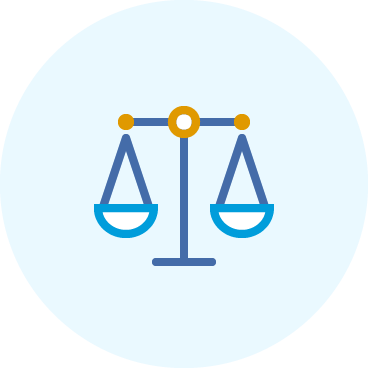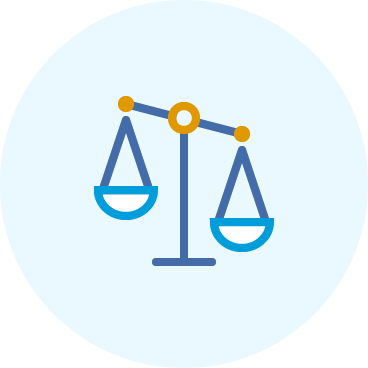What is an ETF?
Combining the flexibility of stocks and the portfolio-diversifying strengths of mutual funds, ETFs give you an affordable way to access a wide variety of asset classes.
How do ETFs work?
ETFs or "exchange-traded funds" are exactly as the name implies: funds that trade on exchanges, generally tracking a specific index. When you invest in an ETF, you can buy and sell during market hours—potentially lowering your risk and exposure, while helping to diversify your portfolio.
-
Exchange
ETFs are bought and sold like a common stock on a stock exchange.
-
Traded
Like a stock, ETFs are traded and experience price changes throughout the day.
-
Funds
ETFs generally hold a collection of stocks, bonds or other securities in one fund or have exposure to a single stock or bond through a single-security ETF.
Why invest in ETFs?
If you're looking for an affordable, potentially tax efficient way to access a broad range of asset classes, investing in ETFs might be right for you. Here are some of the reasons ETFs work for so many investors:
-
Diversification
ETFs provide access to a diverse mix of asset classes, including domestic and international stocks, bonds, and commodities.
-
Lower cost
ETFs typically have lower operating expense ratios (OERs) than actively managed mutual funds.
-
Trading flexibility
Certain ETFs combine the trading versatility of individual securities with the diversified qualities of mutual funds to meet a variety of investment needs.
-
Potential tax efficiency
ETFs are widely considered to be more tax efficient than mutual funds for a number of reasons.
How do ETFs and mutual funds compare?
Both offer advantages but, as with any investment approach, there are also things to consider.
What do ETFs cost?
Many ETFs can be inexpensive, but as with all investments, you should be aware of the costs. Here are the costs most commonly associated with ETFs:
-
Trade commissions
Some brokerages charge you a commission when you buy or sell an ETF. With Schwab, listed ETFs that trade on a U.S. exchange are $0 per trade online.1
-
Operating expense ratio (OER)
The ongoing management fee charged for an ETF by the fund's sponsor. This can vary widely, with the industry asset-weighted average* OER for passively managed ETFs being 0.15%.2
The asset-weighted average OER for cap weighted Schwab ETFs is just 0.04%.3
-
Bid/Ask spreads and premiums
Trading costs can also include two misunderstood and sometimes overlooked items: Bid/Ask spreads and changes in discounts and premiums to an ETF's net asset value (NAV).
What types of ETFs are there?
As ETFs continue to surge in popularity, their numbers and types are growing every day. And understanding what they offer and how they're different is key to choosing the right ETF for you.
Prospect
-
ETFs at Schwab
Choose from 4,000+ commission-free listed ETFs,1 including Schwab ETFs, which are among the lowest expense ETFs in the industry.4
-
Ready to start investing?
Already have an account? Get started.
Need help understanding your ETF options?
-
 Call
Call -
 Chat
Chat -
 Visit
Visit




